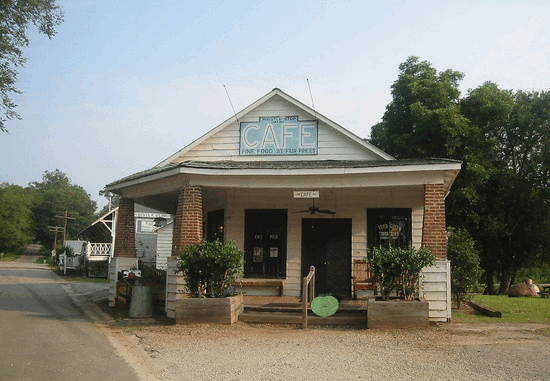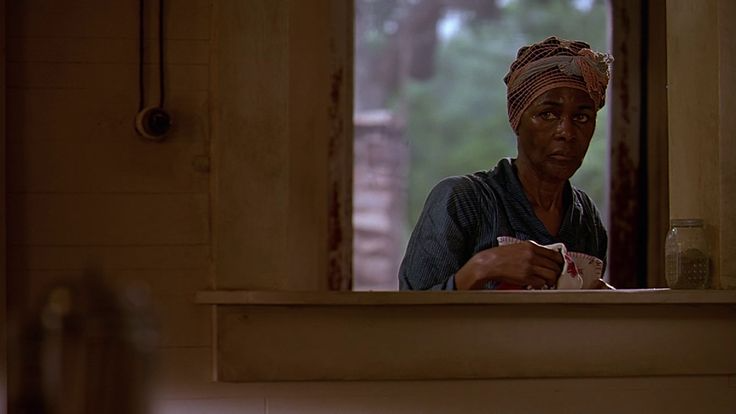
More Than a Café — A Community Hub
In Fried Green Tomatoes, the Whistle Stop Café is far more than a charming Southern eatery. It stands as a powerful symbol of resilience, belonging, and chosen family. Nestled in the heart of a small Alabama town, this café is the nucleus around which the story of Idgie Threadgoode, Ruth Jamison, and the surrounding community revolves. It becomes a place where social norms are challenged, kindness is radical, and outsiders find a home.
During a time of deep racial division, economic struggle, and rigid gender roles, the café offers something increasingly rare: acceptance. It is a place where Black and white neighbors dine together, where a single mother and her child find safety, and where unconventional women like Idgie and Ruth can carve out a life of their own without shame.
The Kitchen Table as Revolution
The kitchen table has long been a metaphor for gathering, negotiation, and nourishment, especially in women’s stories. In Fried Green Tomatoes, the café’s kitchen becomes a revolutionary space. Run primarily by women — with Sipsey, Big George, Ruth, and Idgie forming its beating heart — the café flips traditional gender roles on their head. Here, women are not just cooking to serve others; they are cooking to survive, to resist, and to build a new kind of family.
Each plate of food represents more than Southern hospitality. It represents defiance — of poverty, of patriarchal expectation, of segregation. The café nourishes not just bodies, but a vision of the world as it could be: one built on kindness, mutual care, and fierce loyalty.
Chosen Family and Unbreakable Bonds

At the emotional core of the café is the concept of chosen family. Idgie and Ruth, though never explicitly labeled as romantic partners in the film, function as life partners. They raise Ruth’s son Buddy together, support one another emotionally and financially, and create a shared life that defies 1930s Southern norms.
Their unconventional family is surrounded by others who do not fit the mold of nuclear family ideals. Sipsey and Big George, a Black mother and son working in a segregated South, are integral members of this chosen unit. Together, this patchwork family operates the café and supports one another through grief, danger, and joy.
This vision of chosen family challenges the societal ideal that blood or marriage are the only ties that bind. In Whistle Stop, love, loyalty, and shared purpose define family more than biology ever could.
A Safe Haven in a Divided World
Set against the backdrop of the Jim Crow South, the Whistle Stop Café represents quiet resistance. While the film largely steers clear of explicit political messaging, the café’s ethos is radical in its own right. Black and white characters dine and work together. A woman who fled an abusive marriage is not only protected but embraced. Queerness is implied and gently accepted.
These actions might seem subtle, but in the context of their time, they are acts of bravery. The café becomes a rare space of safety for the marginalized — not a utopia, but a pocket of hope. And when external threats arrive — whether in the form of Ruth’s violent husband Frank Bennett or law enforcement — the café’s family protects its own without hesitation.
Economic and Emotional Independence
Running the Whistle Stop Café also grants Idgie and Ruth a level of economic independence almost unheard of for women of their era. After Ruth leaves her abusive husband, she doesn’t retreat into victimhood or seek another man for support. Instead, she partners with Idgie to build a business that sustains them both.
This choice is quietly revolutionary. In a time when women were expected to remain in the domestic sphere, Ruth and Idgie become entrepreneurs. Their financial autonomy is essential to their emotional freedom. They create something real and tangible together, on their own terms, and it allows them to live with dignity and agency.
Their success challenges the idea that women — especially women outside of traditional marriages — need to be saved or supported by men. In their café, they write their own story.
Sipsey, Big George, and Racial Solidarity
Although the film has been critiqued for softening the realities of race in the Jim Crow South, the characters of Sipsey and Big George still reflect quiet acts of racial solidarity. Sipsey, in particular, is not merely a servant — she is a matriarch and a protector. Her decisive action in killing Frank Bennett to protect Ruth’s child is an act of moral courage that goes unacknowledged by the law but is deeply honored within the café’s family.
Big George’s role as both cook and protector of the café reinforces how essential Black labor and love were to the survival of this chosen family. Though the film glosses over systemic injustice, it does spotlight a kind of interracial community that was radical and rare for its time.
In their shared enterprise, these characters create a model of what racial solidarity might look like when grounded in mutual respect and care — even in a world that tried to keep them divided.
Legacy and Memory — Keeping the Café Alive
Long after the café has closed and the town of Whistle Stop faded into memory, its spirit lives on — especially through the stories Ninny tells Evelyn. To Evelyn, the Whistle Stop Café becomes more than a place in the past; it is a blueprint for how life could be different. A life of connection, courage, and community. In hearing about the café, Evelyn awakens to the possibility of transformation in her own life.
The café, then, transcends geography and time. It lives in memory as a place where people were not just fed, but truly seen. And that is perhaps its most lasting legacy — as a reminder that when people build sanctuaries for each other, even in hostile worlds, they create the conditions for love, resistance, and survival.
Conclusion — A Table Set for Everyone
The Whistle Stop Café, with its wooden floors, frying pans, and stories passed over coffee, is more than a nostalgic setting. It is a beacon. A place where outsiders become insiders, where kindness overrides cruelty, and where chosen family proves stronger than blood ties.
In today’s fractured world, the café’s spirit still resonates. It reminds us that we all need spaces — physical and emotional — where we are accepted fully. And it challenges us to build those spaces for others.
In the end, the Whistle Stop Café teaches us that food, love, and community — shared without judgment — might just be the most revolutionary acts of all.
